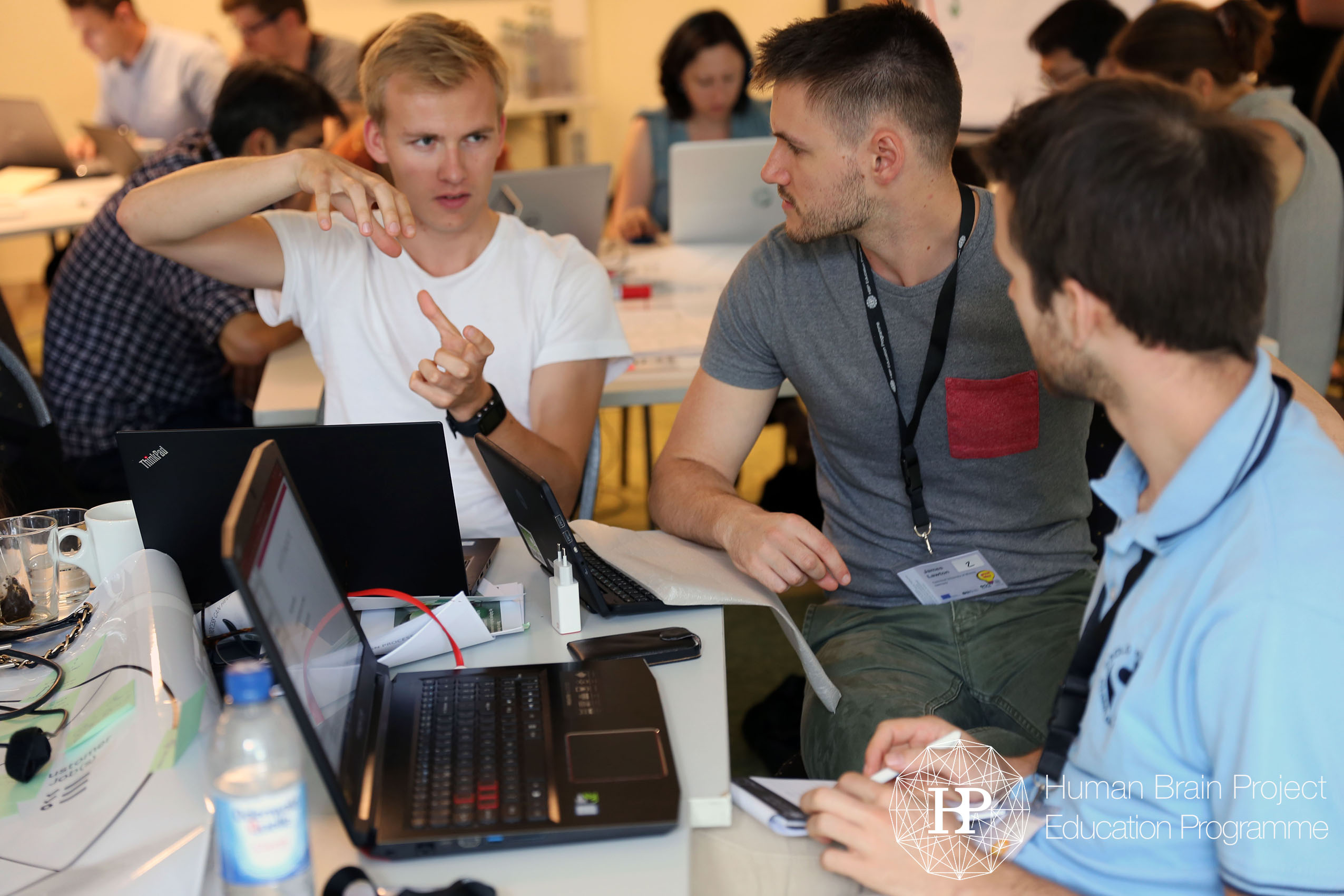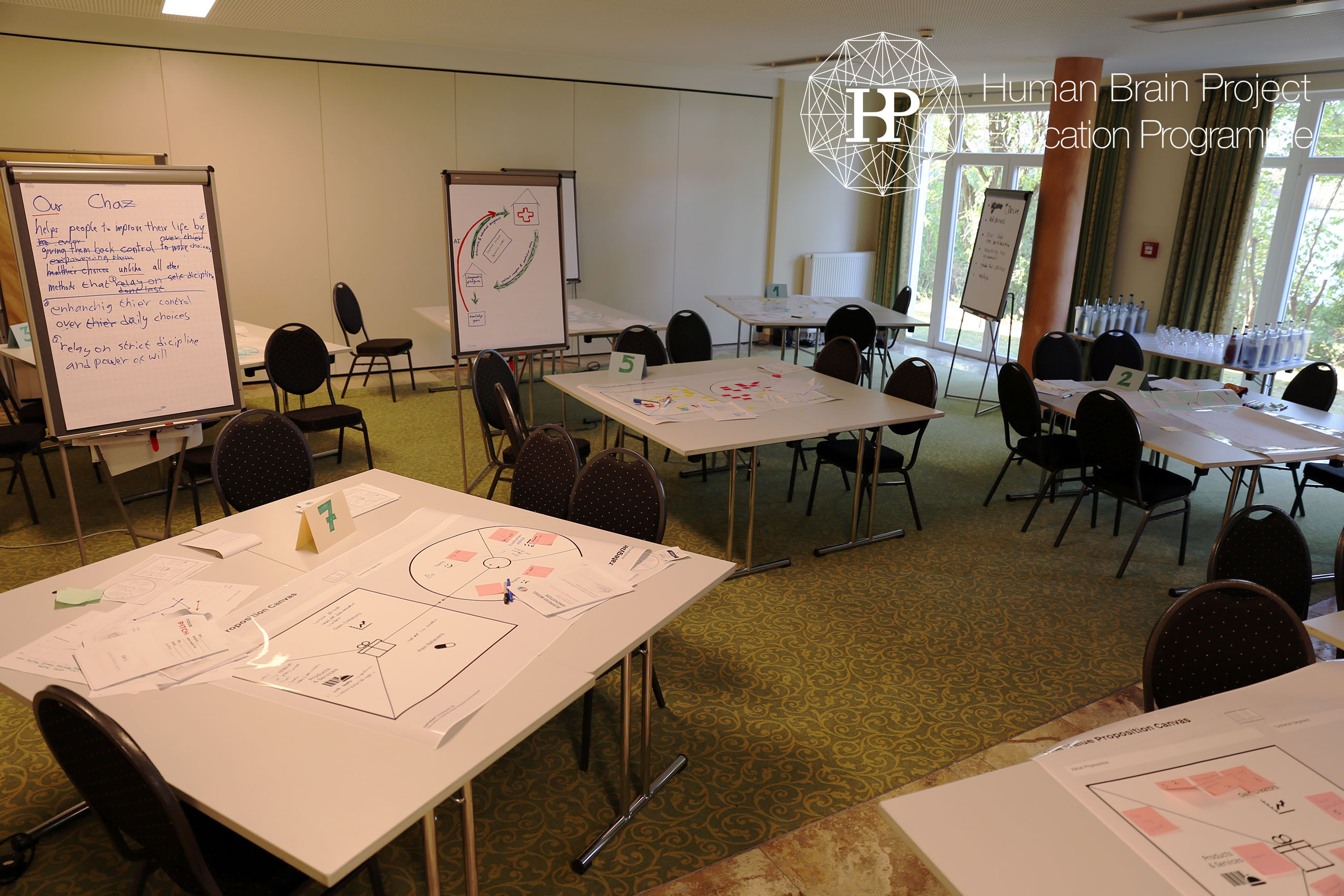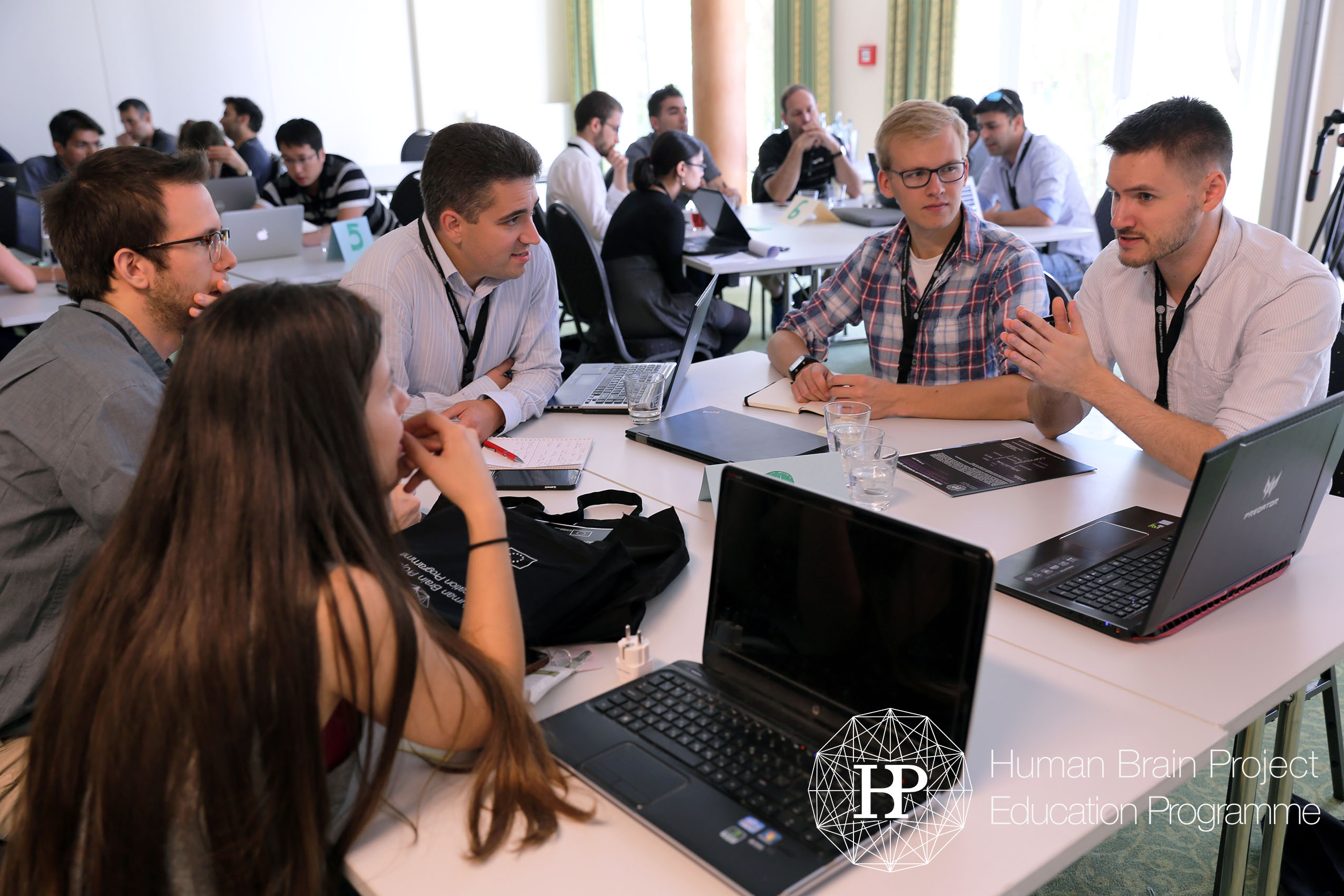While walking through the aisles on a train to Heidelberg, I finally stumble upon my reserved seat… Only to find it and its neighbors are surrounded by a family of 20. Rather than making a fuss - I go ahead and choose an unoccupied seat farther back, hoping to get some sleep in preparation for what I’m imagining will be a long three days. At the next stop, I’m roused awake by somebody asking in a distinct American accent “Is this seat available?”, gesturing to the one next to me. As he sits down, my curiousity peaks as I rarely meet fellow Americans, so we get to talking. It turns out he’s an entrepreneur from the same state that I’m originally from. The next three hours evaporated as we discussed everything from food and healthcare to his entrepreneurship journey and research interest. To elaborate, I was destined to Heidelberg for a conference sponsored from the Human Brain Project titled ‘Entrepreneurship in Neuroscience’. I like to think of this meeting as serendipity.

The conference consisted of a multitude of talks from various entrepreneurs, patent attorneys, researchers, and pharmaceutical representatives. One particular talk that stood out to me was we toured a molecular neuroscience and pathology company called BioMedX where their founder developed a model of bringing together research experts and pharmaceutical companies to achievean impactful goal in the field over the period of a few years. Another talk given by a patent attorney opened my eyes to the strategy behind patenting technology and at what stages your technology can be potentially patentable.
The end goal of this conference was to create a startup product, complete with a business model, company name, logo, etc., and pitch it to the aforementioned experts. You soon realize while building this business how difficult it is to achieve a united vision for your startup as a team, especially because of the limited timeframe. We must have pivoted back and forth multiple times as various experts lent their advice on what our target market should be, if it was too small, or if our product was just…bad. Much of the advice could sometimes conflict, so we learned to filter out what might not be relevant to your product or your vision. One of the most important lessons learned from this workshop was the necessity of having a diverse, yet cohesive team to see the product from many different angles to achieve your end goal.

So, why am I even interested in entrepreneurship? I noticed that many applications and technologies in Neuroengineering are innovative and with a few alteractions could be a consumer-ready product. Translating and exploiting research into an industrial for selling to consumers is incredibly important for neurotechnology. I think some of the public fear of humanoid robots, brain-recording devices, etc., stems from the lack of integration of these technologies with the general public. Transitioning research to industry to solve consumer problems is a primary way to gain increased acceptance of neurotechnologies, and this field is just beginning to take shape. We are at the forefront of this movement and the Neuroengineering program, entrepreneurial workshops, and Human Brain Project help us to steer the ship to more adoption of our research.

One of the most important aspects you can do to benefit your career is networking, whether you aspire to be a researcher or entrepreneur. Our master’s program certainly provides the opportunities to expand your contacts, branch out, and establish these networks for your future career and research aspirations. After all, you never know who you may run into to help you start a business, or whether this person is on the jury of the big grant proposal you are vying for. I think these moments are called serendipity.
Photo credits of the HBP-marked photos belong to the HBP Education Programme
 James Lawton
James Lawton
